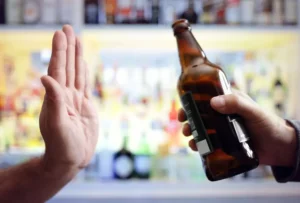
Yes, certain ingredients in alcoholic beverages, such as sulfites in wine or hops in beer, can be more likely to induce sneezing in susceptible individuals. Some people are sensitive to sulfites and can exhibit adverse reactions to sulfite residues in foods. Such reactions can include wheezing, coughing, chest tightness, and allergic rhinitis (hay fever). In very rare cases, sulfites may cause anaphylaxis, a severe allergic reaction.
Can sneezing after drinking alcohol be harmful?
- According to the UK Food Standards Agency, nearly all wines exceed 10mg/L of sulphur dioxide.
- Research shows that around 8% of people experience symptoms like nasal congestion, flushed skin, or even headaches while drinking wine.
- If sneezing persists or is accompanied by other concerning symptoms, consult a healthcare provider.
This will reduce the alcohol in the drink and make it less likely to trigger a sneeze. We use a pharmacist-formulated blend of Quercetin, Bromelain, Dihydromyricetin, Cysteine, L-Theanine, & B Vitamins to stop alcohol flushing before it can begin. Clear alcohol like vodka and gin contain less histamine and sulfites, so are less likely to cause a reaction.
Are there any remedies for sneezing triggered by alcohol?
If you find yourself sneezing after consuming specific alcoholic beverages, the culprit could be an allergy to certain ingredients in those drinks. It is best to consult a healthcare professional for a proper diagnosis if you suspect an alcohol allergy. The sneezing reflex after drinking alcohol is primarily caused by vasodilation, which increases the sensitivity of the nerve endings in your nasal passages. Some people with Hodgkin’s lymphoma experience pain after drinking alcohol. Hodgkin’s lymphoma is a type of cancer that can affect your lymphatic system. Alcohol intolerance is caused by a genetic condition in which the body can’t break down alcohol efficiently.
Supplements That Can Help With Alcohol Intolerance
The amount of alcohol consumed does not necessarily correlate with the likelihood of sneezing. Some individuals may experience sneezing even after consuming small amounts. Just as grapes can become wine, table fruit that becomes too ripe might contain enough alcohol to cause a reaction in someone with an alcohol allergy. Even if people don’t consume enough alcohol to cause a hangover, they can still get a headache from drinking.
Besides wines, fruits like bananas, kiwi, melons, and grapes can also contain sulfites, though https://ecosoberhouse.com/ in much smaller amounts. It is important to be aware of any symptoms you may experience after consuming alcohol. While it can sometimes be harmless, there are times when the underlying cause could be more serious. In particular, if you have developed an intolerance or allergy to wine, then this could lead to more severe reactions such as anaphylaxis. Symptoms of a wine allergy include rashes, why do i sneeze when i drink alcohol nasal congestion, wheezing or a tingling sensation around the mouth and throat.
Can beer cause a histamine reaction?
- The onset of symptoms is usually noticed by slightly more laboured breathing after consuming alcohol.
- People with a beer allergy will likely experience symptoms similar to other allergic reactions, such as abdominal pain, bloating, and chest tightness.
- The immune system overreacts to this exposure in the body, treating alcohol as a threat.
- In many cases, even moderate drinking (defined below) appears to increase risk.
- There is no evidence suggesting that age or gender has a significant influence on alcohol-induced sneezing.
The most Substance abuse common of these compounds are sulfites, which are typically highest in beer, brown liquor, and cider. Alcohol intolerance occurs when your body doesn’t have the proper enzymes to break down (metabolize) the toxins in alcohol. Heavy drinking can also cause problems well beyond the health of the drinker — it can damage important relationships. It’s all too common that problem drinking disrupts bonds with a spouse, family members, friends, coworkers, or employers.
Surprising side effects of alcohol
The fermentation and ageing process of making wine directly produces histamines, the chemicals your body makes in response to allergy triggers. This leads to allergy symptoms like a runny nose, stuffy sinuses, and sneezing. This could be due to specific ingredients or allergens in these beverages. Yes, some people may experience more severe allergic reactions to alcohol, such as hives, itching, swelling, or shortness of breath. However, you can try avoiding specific alcoholic beverages or reducing your alcohol consumption to see if it makes a difference. Allergic reactions to beer can manifest as abdominal pain and bloating, chest tightness, hives, wheezing, and chest pain.
About Medical News Today

For instance, some individuals may be sensitive to the sulfites present in wine or the hops in beer, resulting in an allergic reaction and subsequent sneezing. Dilated blood vessels can cause inflammation and swelling in the nasal passages. In some people, drinking alcohol may also trigger an allergic reaction, which can cause sneezing and other symptoms.

If this sound like you or someone you know, be sure to be mindful of foods like aged cheese, bread, and other fermented products like cider that can contain histamines as well. Drinking plenty of water, limiting and slowing down alcohol consumption, and eating before drinking can help to reduce the vasodilation effects of alcohol. In most cases, alcohol-induced sneezing is not a sign of a serious underlying health condition. However, if you have concerns, it is best to consult a healthcare professional for a proper evaluation. If alcohol consistently triggers sneezing and causes discomfort, avoiding or limiting alcohol intake may be a suitable solution.

If you find that certain drinks trigger your sneezing, try switching to a different type of alcohol. And if cocktails make you sneeze, try making your own with fresh fruit juices instead of pre-made mixes. Some people find drunk sneezing that when they drink alcohol, they experience sneezing and nasal congestion.

Commentaires récents